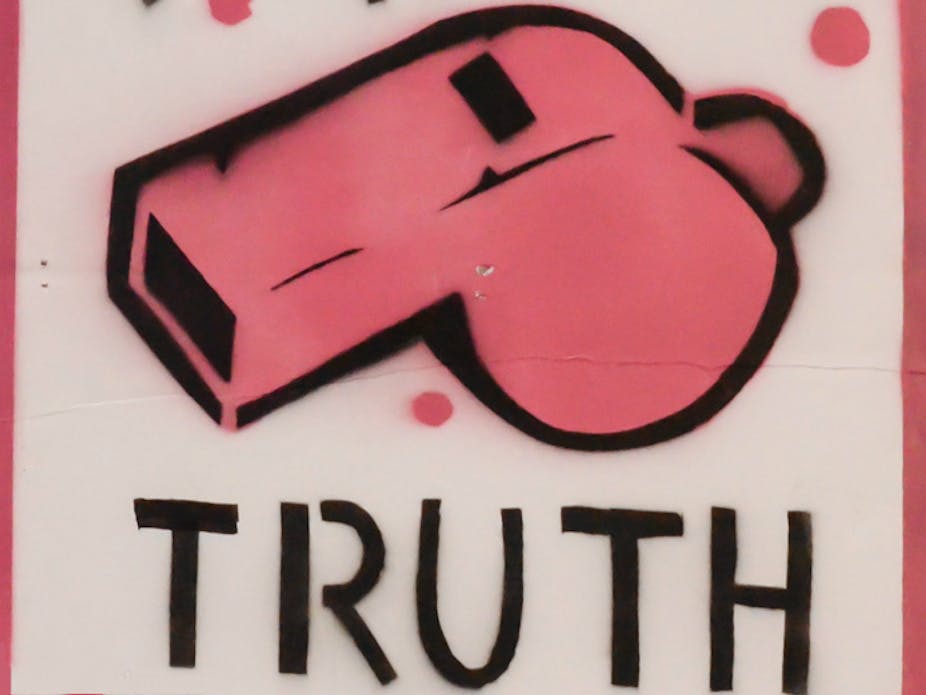Whistleblowing performs a public service that is celebrated in the media, condoned by the public, and increasingly protected by the government. So why are we so reluctant to do it? Recent research we published in the Journal of Theoretical Biology suggests the opposing tendency to complicity may have roots in our evolutionary past.
Of course, humans (and many other species) benefit from duplicating the actions of those around us. But what of the cases when we discover that the actions of others are wrong? If the goal is to capitalise on this information, then you should expect that we immediately update our behaviour with the correct information and that the rest of the group will follow.
This is what we find across many species, with one notable exception: humans. As a species we insist on sticking with what we have been told despite knowing its wrong. Humans use error-prone gossip to dictate their actions, even when accurate information is freely available.
Most explanations for this depend on various kinds of limits to our rational abilities. Several argue that since the fidelity of human social information is superior to other species, it is a beneficial heuristic (essentially using intelligent guesswork rather than a formula to work something out) to stick with it longer than for other species. The implication is that if our cognitive performance was better, we would figure out when to ignore social information.
However, our research at the University of Bath suggests another, much simpler explanation. Far from being maladaptive, choosing complicity instead of whistleblowing may often be the most advantageous option for both the individual and the group. This is because the reform the whistleblowing requires cannot happen group-wide in one fell swoop. The disruption caused both to the individual and group by attempting the reform may outweigh the benefits.
Model societies
As computer scientists, we used modelling to create a virtual society of individuals that depended on co-operation. We then introduced bad practice into the society and observed the results.
Individuals and groups that were aware of the bad practice, but ignored it, repeatedly performed better than those that blew the whistle. This effect was so strong that even in a society composed entirely of honest whistleblowers the introduction of just one “company man” inevitably resulted in the complicit behaviour spreading like a virus to the whole society.

Of course, these results in no way suggest that such complicit behaviour is justified. Our first allegiance is to justice, but in evolutionary terms national law is a comparatively recent development. In this respect, the situation resembles an explanation for the difficulties we experience in dieting – we struggle with a metabolism that is optimised to store fat in response to the demanding environment in which we evolved. Here we struggle to willingly cause disruption to group co-operation, since we evolved in a context where the ability to achieve such co-operation may have provided the overriding advantage.
If, in our evolutionary past, a co-operative society was more advantageous than a just society, there would be little surprise in our hesitation to blow the whistle. Furthermore, many whistleblowers end up unheard or are punished for their actions, which can only serve to reinforce this hesitation.
Current thinking focuses on providing external inducements to potential whistleblowers. But if our research is correct this may be counter-productive and simply result in increased stress levels for employees. A better alternative may be to focus on the company ethos.
If an organisation’s policy can be reformulated so that whistleblowing is regarded internally as an act of loyalty, then it will no longer contradict the evolutionary urge to be co-operative.

